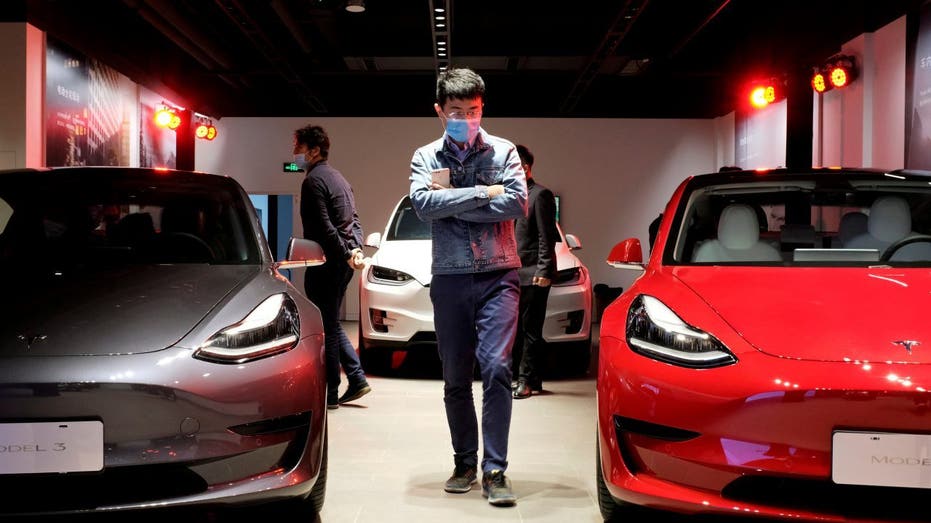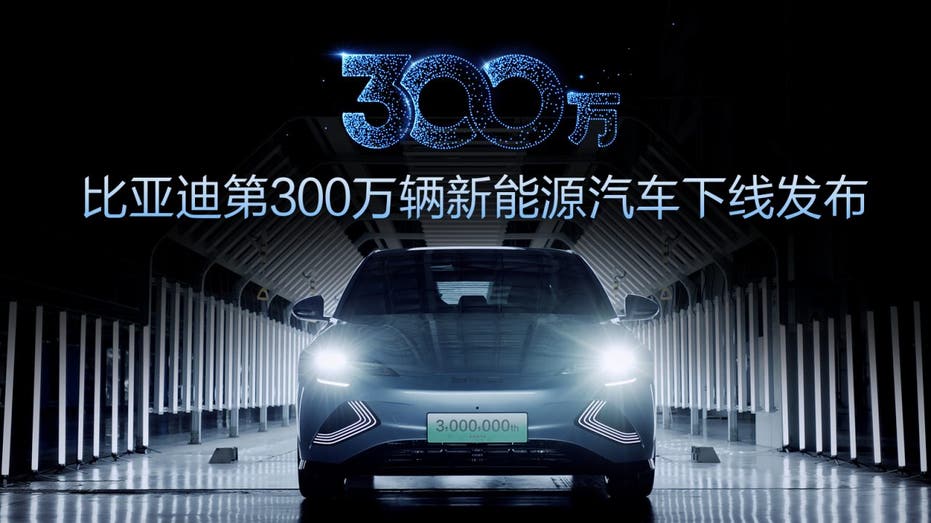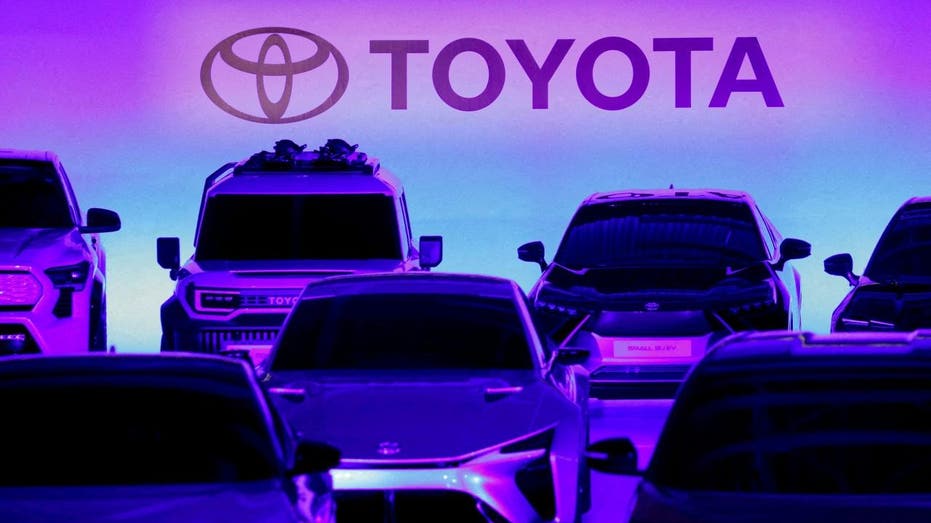China’s EV sales broke record in 2022 as overall auto market stalled
Subsidies, high oil prices lead buyers to switch from gas-guzzling models
Tesla stocks fall due to China EV demand, Musk's Twitter 'distraction': R 'Ray' Wang
Constellation Research founder R 'Ray' Wang discusses the performance of Tesla's stocks as they head for record lows and provides an outlook for tech stocks.
Sales of new-energy vehicles almost doubled in China last year, even as overall car sales remained sluggish with auto makers weathering severe production disruptions and economic challenges under strict anti-Covid-19 curbs.
China sold 5.67 million electric vehicles and plug-in hybrids in 2022, the China Passenger Car Association said Tuesday, as state subsidies and high oil prices led buyers to switch from gas-guzzling models.
More than 4 million of new-energy vehicles sold were all-electric vehicles, five times more than that sold in the U.S. last year, cementing China’s place as the world’s top EV market.

A man wearing a face mask following the coronavirus disease (COVID-19) outbreak walks by Tesla Model 3 sedans and Tesla Model X sport utility vehicle at a new Tesla showroom in Shanghai, China May 8, 2020. (REUTERS/Yilei Sun / Reuters Photos)
Soaring EV sales added some gloss to another tough year for auto makers in China. Retail sales for electric and plug-in hybrid vehicles vastly outgrew those of traditional cars, which saw sales shrink 13% last year.
CHINA’S EV MARKET WILL SLOW IN 2023. THAT STILL LEAVES IT AHEAD.
Overall, passenger-car retail sales climbed 1.9% from 2021 to 20.5 million, according to the CPCA data. That was down from more than 4% growth in 2021 from the year before.
This year might remain challenging for auto makers as a result of a sluggish global economy, higher interest rates in the U.S., and a large inventory held by China’s manufacturers and dealers, CPCA’s Secretary-General Cui Dongshu said. China might expect to see around 1% in annual growth in its car market, with fewer sales in the earlier months before they pick up speed toward the end of the year, he said.

BYD Rolls Off Its 3 Millionth New Energy Vehicle and Debuts A New Passenger Car Brand Matrix (AP Newsroom)
The sale of new-energy cars this year might also see a pull back from explosive growth seen in the past as potentially lower oil prices could push some consumers back to buying traditional vehicles, he said. Growth could slow to around 30% this year from 2022, he said.
China’s auto market has stumbled in recent years after a long period of breakneck growth that attracted many of the world’s leading auto makers. Foreign joint ventures are especially struggling to retain their market share in China as more domestic brands successfully capture the booming EV market and overall sales stagnate.
BYD Co. jumped from the 10th place on the retail sales chart in 2021 to the top in 2022, replacing Volkswagen AG’s joint venture with FAW Group Co., which slipped to second place.
CHINA TESLA BUYERS PROTEST PRICE CUTS: VIDEO
BYD’s overall sales—which includes all-electric cars and plug-in hybrids—more than tripled from a year earlier to 1.86 million cars. Geely Automobile Holdings Ltd. sold more than 262,000 EVs in 2022, of which around 72,000 were from Zeekr, its premium EV brand launched in late 2021.
Tesla Inc. delivered more than 710,000 EVs from its Shanghai factory last year. In December it sold around 42,000 cars in China, a drop from November despite starting to offer discounts.
| Ticker | Security | Last | Change | Change % |
|---|---|---|---|---|
| BYDDY | BYD CO. LTD. | 12.02 | -0.05 | -0.41% |
| GELYF | GEELY AUTOMOBILE HOLDINGS LTD. | 2.13 | +0.03 | +1.43% |
| TSLA | TESLA INC. | 411.11 | +13.90 | +3.50% |
To boost sales, Tesla announced rounds of price cuts and discounts, placing its Model 3 and Model Y in competition with other midrange EVs from domestic competitors such as those of BYD, backed by Warren Buffett.

Warren Buffett, Chairman and CEO of Berkshire Hathaway, speaks during a game of bridge following the annual Berkshire Hathaway shareholders meeting on May 5, 2019, in Omaha, Neb. Buffett's company revealed that it had cut its holdings in U.S. Bank's (AP Newsroom)
Prices for Tesla’s two most popular electric-car models saw further cuts last week, by as much as 13%. The Model 3’s starting price in China is now 30% cheaper than it sells for on the company’s U.S. website.
China’s car sales plummeted in April from a year earlier as its automobile-manufacturing hubs in Shanghai and in northeastern cities underwent weeks of lockdowns, when people were confined to their homes and industries had to stop production or operate at a reduced capacity amid severe supply-chain disruptions.
Among those manufacturers hardest hit during a three-month slump that ended in May were Tesla, Volkswagen and Nissan Motor Co. Tesla’s deliveries were down more than 90% in April compared with the previous year.
| Ticker | Security | Last | Change | Change % |
|---|---|---|---|---|
| VWAPY | VOLKSWAGEN AG ADR | 11.975 | +0.07 | +0.55% |
| NSANY | NISSAN MOTOR CO. LTD. | 5.17 | -0.18 | -3.36% |
The impact of Covid-19-related disruptions ricocheted beyond China: Toyota Motor Corp. had to suspend assembly lines in Japan as a result of these disruptions in China, the company said at the time.

Toyota cars are seen at a briefing on the company's strategies on battery EVs in Tokyo, Japan, December 14, 2021. REUTERS/Kim Kyung-Hoon/File Photo (AP Newsroom)
In a rebound, the Chinese car market saw explosive growth in June, but that fizzled out toward the end of the year in a sign that the nation’s economy was feeling the impact from a year of zero-Covid policies. Appetite for new cars began to damp in September and by November it shrank by more than 9% compared with a year earlier.
CLICK HERE TO GET THE FOX BUSINESS APP
In December, China’s car sales perked up, rising 3% from a year earlier to reach 2.17 million units as consumers took advantage of the final weeks of vehicle tax cuts and new-energy car subsidies before they expired at the end of the year.




















